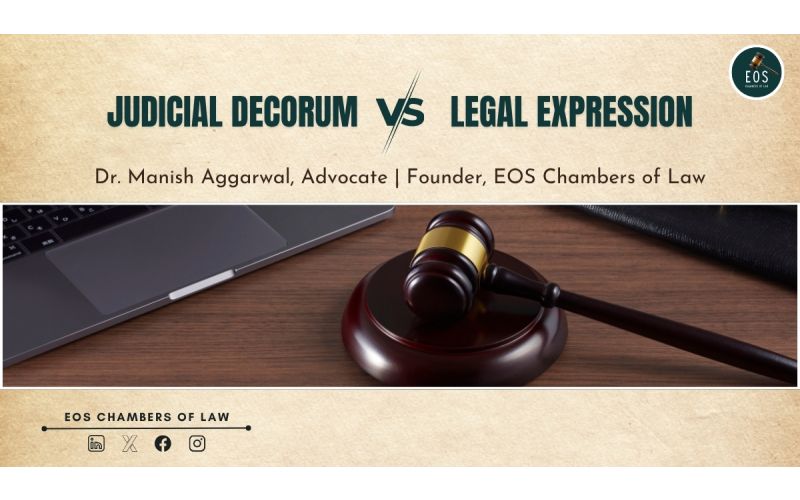Understanding Indian Constitutional Laws: A Brief Overview

Understanding Indian Constitutional Laws: A Brief Overview
Introduction:
Indian Constitutional Law is the backbone of the country's legal system, laying down the framework for governance, rights, and duties of citizens, and the functioning of various institutions. Enshrined in the Constitution of India, adopted on January 26, 1950, it reflects the aspirations of the founding fathers to create a democratic and egalitarian society.
Key Features of Indian Constitutional Laws:
-
Preamble: The Preamble of the Indian Constitution sets out the ideals and objectives of the Constitution, including justice, liberty, equality, and fraternity. It serves as a guiding light for the interpretation and implementation of laws.
-
Fundamental Rights: Part III of the Constitution guarantees fundamental rights to every citizen, such as the right to equality, freedom of speech and expression, right to life and personal liberty, and right to constitutional remedies. These rights are enforceable by the courts and form the cornerstone of Indian democracy.
-
Directive Principles of State Policy: Part IV of the Constitution contains Directive Principles of State Policy, which are guidelines for the government to promote social justice, economic welfare, and other ideals. Though not enforceable by the courts, they are fundamental in the governance of the country.
-
Federal Structure: The Indian Constitution establishes a federal structure with a division of powers between the central government and the state governments. It delineates the legislative, executive, and judicial powers of the Union and the states to ensure a balance of power.
-
Independent Judiciary: The Constitution establishes an independent judiciary with the Supreme Court as the highest judicial authority. It acts as the guardian of the Constitution, ensuring its supremacy and protecting the rights of citizens through judicial review.
-
Amendment Procedure: The Constitution provides for its own amendment to adapt to changing circumstances. Amendments can be made by a special majority of both houses of Parliament, ensuring the flexibility and adaptability of the Constitution.
Conclusion:
Indian Constitutional Laws embody the principles of democracy, equality, and justice, guiding the nation towards progress and prosperity. With its robust framework and dynamic nature, it continues to evolve to meet the challenges of a changing world while upholding the values enshrined in its preamble. Understanding these laws is essential for every citizen to actively participate in the democratic process and contribute to the nation's growth and development.
Post Categories
Featured Posts
Latest Posts
Latest Posts

Parliament Passes Forest Conservation Amendment Bill...
After opposition walked out over their demands for discussion on Manipur Violence the Rajya Sabha passed the contentious Forest Conservation Amendment Bill today It aims to amend certain provisions under the Forest Conservation Act to extend and exempt...

Marriages Don t Require Public Declaration SC...
The Supreme Court of India has ruled that not all marriages require a public declaration or solemnisation Not every valid marriage requires a public declaration or solemnisation in a particular manner the Supreme Court held on Monday as it underlined...

Get Online Pass To Enter Supreme Court Premises...
The Supreme Court on Thursday launched lsquo SuSwagatam rsquo a new initiative to generate entry passes online to help those who need to visit the court premises for various purposes Chief Justice of India CJI D Y Chandrachud on Thursday...

S NI Act Proceedings For Cheque Dishonour Need To Be Quashed Once Complainant Signs...
In a Criminal Appeal arising out of proceedings under Section of the Negotiable Instruments Act the Supreme Court has ruled that once the settlement has been arrived at and the complainant has signed the deed the proceedings under...

Judicial Decorum vs Legal Expression Balancing Dissent with Discipline in India s Courtrooms...
The Incident That Sparked a National Conversation The recent events in the Supreme Court of India have reignited a fundamental debate mdash where does a lawyer rsquo s right to expression end and duty to maintain decorum begin A courtroom...

Supreme Court Stays High Court Order On Old Pension Scheme For Paramilitary Forces...
The Supreme Court on Friday stayed the Delhi High Court judgment which held that the old pension scheme OPS will be implemented in the Central Paramilitary Forces CAPF During a brief hearing a bench of Justices Sanjeev Khanna and Bela...

Speak With Our
Get a Appointment
















